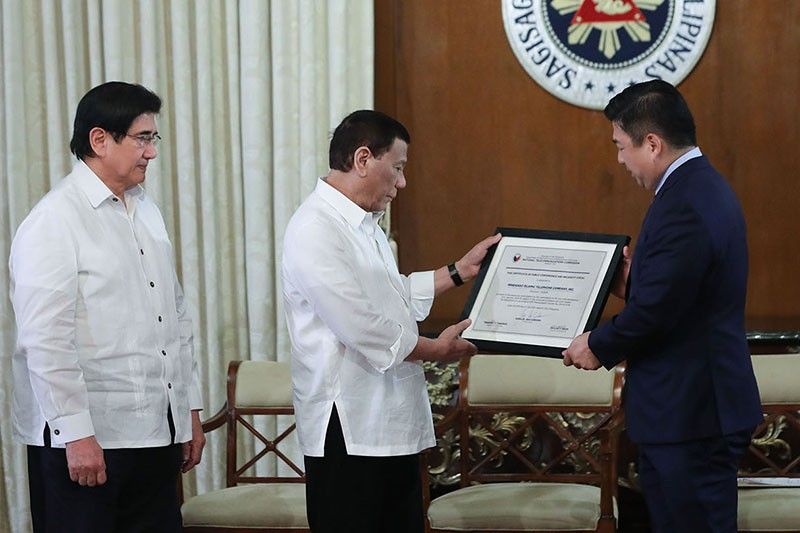Dito Telecom says it has cybersecurity plan amid concerns over its Armed Forces deal

MANILA, Philippines — The country's third telco player Dito Telecommunity assured the public that it has a cybersecurity plan following its agreement with the Armed Forces of the Philippines.
Dito, formerly Mislatel, is a consortium composed of Chelsea Logistics and Infrastructure Holdings Corp., Udenna Corp, and China Telecom.
Under the agreement, the military allows the China-backed telco provider to build its communications facilities in military camps and installations.
"We want to assure the public that DITO has a cybersecurity plan, as approved by [National Telecommunications Commission], and that the company will always protect the national cybersecurity interests of the Philippines," Dito said in a statement.
Dito also noted that the cybersecurity plan is a requirement for the third telco but they are unaware whether the other major providers had the same requirements.
The third telco also stressed that the Armed Forces had signed a similar agreement with both Globe and Smart.
Defense Secretary Delfin Lorenzana has yet to sign the memorandum of agreement to finalize the deal that would allow China Telecom to build facilities in military bases.
"As a Filipino company, DITO Telecommunity will of course comply with all government requirements. Please note that when we signed the agreement, we understood that it was not yet final and subject to approval with the Secretary of National Defense," Dito said.
Lorenzana was out of the country when the military and the third telco player signed the deal last week but Armed Forces chief Gen. Benjamin Madrigal Jr. told the DND chief that the memorandum of agreement would be forwarded to his office for approval.
Sen. Francis Pangilinan earlier warned that the deal between the Armed Forces and the China-linked consortium is "very disturbing" as the Chinese government might use the communications facilities to gather intelligence.
Pangilinan noted that China has two laws — the 2017 National Intelligence Law and the 2014 Counter-Espionage Law — mandating private organizations and citizens to cooperate in intelligence-gathering of the state.
Senate Pro Tempore Ralph Recto said leaving Lorenzana "clueless" on the deal raises the "vulnerability of our borders from intruders."
"The concern that these could morph into embedded listening devices, and that the project is like letting an electronic Trojan horse into our camps, should have been subjected to third-party expert study," Recto said.
Following the statement of Malacañang that Lorenzana was unaware of the agreement, Sen. Risa Hontiveros filed a resolution seeking for a Senate inquiry into whether or not the presence of foreign telecom provider's facilities in military camps undermines national security.
"If the Secretary of [Department of National Defense] was left clueless about the China Telecom-[Armed Forces of the Philippines] deal in his own backyard, then maybe it is time to install a radar system in his office," Senate President Pro Tempore Ralph Recto says of a deal to allow Dito Telecomunity — composed of China Telecom and Udenna Corp.— to place its system, towers and facilities inside military bases in the country.
"The project to allow a Chinese telco to install towers inside our military camps should have been cleared at the highest level due to its security implications," he says.
"The concern that these could morph into embedded listening devices, and that the project is like letting an electronic Trojan horse into our camps, should have been subjected to third party expert study," Recto also says.
The Armed Forces of the Philippines has assured the public that the deal has yet to be finalized and that it is conscious of the need to ensure national security.
Sen. Risa Hontiveros has nonetheless filed a resolution for hearings on the deal.
Noting that the country's top defense official was "left in the dark," Hontiveros filed Senate Resolution 137 calling for an investigation into whether or not the presence of foreign telecom provider's facilities in military camps undermines national security.
"Is there now a 'sign first, worry about security later' policy under this administration?" Hontiveros says.
- Latest
- Trending
































